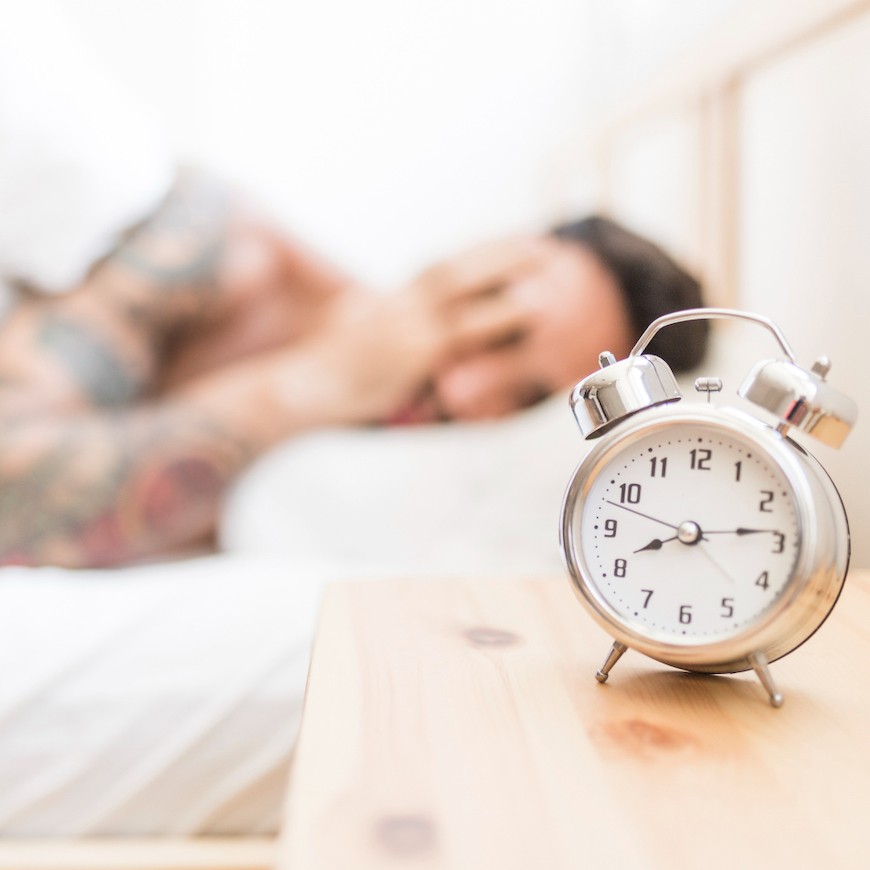Restful sleep? When we lead fast-paced, exhausting lives, it can be tempting to neglect essential aspects of our health, like getting a proper night’s restful sleep. Many quotes emphasize working hard to achieve success, but you must also understand the importance of maintaining your health, especially your comfort during sleep at night.
Despite feeling tired, sometimes we just can’t seem to drift off. The reason is often tied to the bad habits we unknowingly develop, which can directly affect our health and, in turn, the quality of our sleep.
Let’s start first, by many aspects that can help you to improve your sleeping status.
1. Change sleeping positions
One practical tip is to change your sleeping position. Each position has its pros and cons, and adjusting how you sleep can make a big difference in achieving restful sleep.
The best sleeping position is often considered to be on your back, as it supports the spine and neck. However, this position can also contribute to issues like snoring or sleep apnea. Conversely, sleeping on your stomach has more drawbacks than benefits. This position forces your head to twist to one side, which can cause discomfort and strain in the upper body.
Sleeping on your side can relieve spinal pressure, but it may put stress on your hips. The fetal position allows your muscles to relax and can reduce issues like acid reflux or heartburn, though it may make breathing more difficult. The key takeaway is to switch positions throughout the night to promote better restful sleep.
2. Maintain a consistent sleep schedule.

Another important habit for restful sleep is to maintain a consistent sleep schedule. Sticking to a consistent bedtime and wake-up time each day helps regulate your body’s internal clock, leading to improved, uninterrupted sleep quality.
It’s important to understand that sleep is regulated by your circadian rhythm, a 24-hour biological clock that varies from person to person. To ensure a restful night’s sleep and wake up feeling refreshed, it’s crucial to establish a consistent routine, particularly when it comes to your bedtime and wake-up time.
Sleeping in late can disrupt your next bedtime, and if this becomes a habit, it will impact your sleep quality in the long run. Maintaining a regular sleep-wake schedule helps your body feel naturally tired at the right time, signaling when it’s time for bed.
3. The bed is for sleeping only

Moreover, you have to understand that the bed is for restful sleep only. Using the bed for activities like watching TV or working can confuse your brain, disrupting your ability to sleep. Therefore, keeping your bed a sleep-only zone helps your mind and body recognize when it’s time to rest.
The bed should be seen as a space reserved exclusively for restful sleep. Engaging in other activities, for example, watching Netflix, eating, or reading, can interfere with this association, making it harder to fall asleep. The major aim is to create a strong mental link between your bed and sleep.
It’s also crucial to only go to bed when you feel ready to sleep. If you’re lying awake and sleep isn’t coming, it’s better to get up and do a relaxing activity elsewhere. Staying in bed while you’re unable to sleep can lead to anxiety. Your bed should be a sanctuary for relaxation, free from stress and negative thoughts.
4. Avoid exercising in the afternoon or evening

Another factor to consider is avoiding late afternoon or evening workouts. While physical activity is important for overall health, working out too late in the day can stimulate your body and make it harder to wind down on time for restful sleep. Especially since your heart rate will increase, making you feel awake for a long time.
Therefore, exercising late in the day raises your body temperature and stimulates both your body and mind, potentially disrupting restful sleep.
To promote better sleep, it’s recommended to finish your workout at least three hours before bedtime. This gives your body enough time to cool down and transition into a more relaxed state, which is essential for falling asleep faster and improving sleep quality.
5. Eating light meals will help you sleep better
Having a light dinner can enhance your chances of enjoying a restful night’s sleep. Heavy meals close to bedtime can lead to discomfort and digestive issues, making it difficult to drift off. Opting for a lighter, easily digestible evening meal can promote a more peaceful slumber.
As a general guideline, aim to have dinner at a consistent time each evening. Eating a heavy meal right before bed can be particularly detrimental, as it disrupts digestion and complicates falling asleep.
That said, it’s also crucial not to skip dinner altogether. Going to bed hungry can interfere with sleep by triggering strong cravings, which may lead to late-night snacking.
Read more: 4 foods before bed for an uninterrupted sleep
6. Create a comfortable environment before you go to sleep
Lastly, make sure to create a comfortable environment before bedtime. A peaceful, cozy space with the right temperature, minimal noise, and soft lighting can help signal to your body that it’s time to wind down and achieve restful sleep.
When your sleeping environment is comfortable, it becomes much easier to fall asleep. Many methods can be used to create an environment conducive to restful sleep, such as soft lighting, calming music, and a comfortable bed. Other important factors to manage include noise, which should be minimized, and the temperature of your room. It’s also a good idea to open the window every day for around 10 minutes to let fresh air circulate into your room.
In addition, try to reduce exposure to blue light from screens, such as phones or computers. These devices should be turned off before bedtime, as they can interfere with your body’s ability to wind down.







